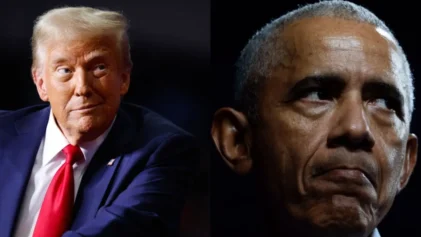House Speaker John Boehner has now stepped into perhaps the defining moment of his career.
After he and President Obama had failed to close the deal to avert the fiscal cliff with a little more than a week to go before the ax falls, Boehner thought he could be cute and make an end-run around President Obama by getting his House Republicans to pass a Plan B. The Plan B was to pass a bill raising taxes on millionaires while keeping them the same for everyone else, demonstrating to the country that the Republicans were serious about tax reform while the president wasn’t. But the only problem: Boehner couldn’t even get a majority of House Republicans to go along with his Plan B, forcing him to pull it back from a vote last night and make the embarrassing admission that he couldn’t even get his own bill passed.
So now the House Speaker is faced with a painful decision: Does he save the country and go along with the president’s fiscal cliff deal, which is likely to pass the House with unanimous Democratic support and enough votes from Republicans—but which would surely incite an ugly House revolt among the rest of the Republicans that probably would topple him from the leadership position during next month’s leadership vote? Or does he save his position as House Speaker at the country’s expense, allowing the country to go over the fiscal cliff and then trying to blame Obama and the Democrats for failing to get a deal done?
Already, polls show that a strong majority of Americans support Obama’s position in the negotiations and a strong majority also says it would blame Republicans if the two sides failed to come to an agreement to avert the fiscal cliff. So in effect, if Boehner went along with Obama and endured the wrath of his party’s more conservative wing (that’s a joke—the entire party is the more conservative wing), he could actually be saving the Republicans from themselves by rescuing their image in the eyes of most Americans. It’s an intriguing political moment—and ironically one that Boehner largely boxed himself into by coming up with the boneheaded Plan B anyway, which the Senate would not have passed and the president would have vetoed if it reached his desk. Plan B was just about political grandstanding and being able to point the finger of blame at the other side—and it wound up circling back around and dooming the Speaker himself.
As we’ve said before, this ultra conservative Republican army is the gift that the country has gotten from the intense gerrymandering that’s been done all across America by Republican-controlled state legislatures: In their effort to make as many conservative Republican districts as possible, they have now created a scenario where the House is full of politicians who are out of step with the rest of the country, representing right-wing communities so virulently opposed to Obama and everything he stands for that they would punish any Congressman who appeared to be giving Obama something that he wants—even if it benefits the country. As a result, these conservative Republicans refuse to even raise taxes on millionaires—because they took Grover Norquist’s pledge never to raise any taxes, and because it’s something Obama has been saying he wanted for at least the past year.
The fiscal cliff tsunami that could take $2,000-3,000 out of the pockets of the average American is a confluence of the expiration of the Bush tax cuts, the expiration of President Obama‘s 2 percent payroll tax cut, and a huge cut in government spending, all set to go into effect at the end of the year and which would take a combined $800 billion or so out of the U.S. economy at a time when the nation is just recovering from the Great Recession.
This is where the negotiations stalled:
The current level of revenue increase in the latest Obama offer stands at $1.2 trillion over 10 years, down from his initial offer of $1.6 trillion and significantly closer to Boehner’s offer of $1 trillion. As for the tax cuts, the White House would permanently extend the Bush tax cuts on incomes below $400,000, meaning that only the top tax bracket, 35 percent, would increase to 39.6 percent. The current cutoff between the top rate and the next highest rate, 33 percent, is $388,350. This is clearly something that would cause the majority of House Republicans to balk, but insiders believe it could get through the House with unanimous Democratic support and enough votes from the few Republicans who actually believe in compromise.
As for spending, the White House sits at $1.22 trillion in spending cuts over 10 years, which is actually more cuts than the Republican initial offer of $1.2 trillion. But it is where the cuts occur that will be the biggest sticking point. The White House plan says $800 billion of the cuts would come from programs and $122 billion would come from using a new way to measure inflation that slows the growth of government benefits, particularly Social Security. The White House plan also includes $290 billion in savings from lower interest costs on a reduced national debt.


